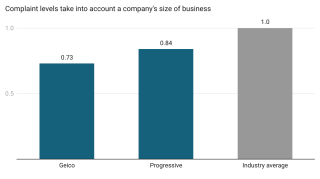The Most Common Reasons for Insurance Claim Denials
Insurance provides individuals and businesses with financial security in the event of an unexpected loss. However, despite the assurances provided by insurance policies, claim denials are a reality that many policyholders face. Understanding the most common reasons for insurance claim denials can help individuals and businesses to better protect themselves and ensure that they receive the coverage they need when they need it.
Policy Exclusions
One of the most common reasons for insurance claim denials is policy exclusions. Every insurance policy has exclusions that specify what is not covered by the policy. For example, a homeowner’s insurance policy may exclude damage caused by floods or earthquakes. If the policyholder experiences a loss that falls under an exclusion, the insurance company will likely deny the claim.
Lack of Coverage
Another common reason for insurance claim denials is a lack of coverage. Policyholders may assume that their insurance policy covers a particular type of loss, only to find out later that it does not. This can happen when policyholders fail to read their policy carefully or do not understand the coverage limits and exclusions.
Failure to Disclose Information
When applying for insurance, policyholders are required to disclose certain information to the insurance company. This information helps the insurer to assess the risk of providing coverage and to determine the appropriate premium. If a policyholder fails to disclose relevant information or provides false information, the insurance company may deny the claim.
Late Notification
Insurance policies require policyholders to notify the insurer of any loss or damage as soon as possible. Failure to do so can result in claim denial. Policyholders should also be aware of any specific notification requirements in their policy, such as notifying the insurer within a certain number of days or providing documentation of the loss within a certain timeframe.
Failure to Mitigate Loss
Insurance policies require policyholders to take reasonable steps to mitigate their losses after a loss or damage occurs. For example, if a homeowner experiences water damage, the homeowner is expected to take steps to prevent further damage, such as turning off the water supply and moving valuable items out of harm’s way. Failure to take reasonable steps to mitigate the loss can result in claim denial.
Intentional Acts
Insurance policies do not cover losses that result from intentional acts. For example, if a policyholder intentionally damages their own property and then files a claim for the damage, the insurance company will likely deny the claim.
Lack of Evidence
Policyholders are required to provide evidence of the loss or damage they are claiming. This evidence may include photos, receipts, and other documentation. Failure to provide sufficient evidence can result in claim denial.
Fraud
Insurance fraud is a serious crime that occurs when policyholders make false or exaggerated claims in order to receive payment from the insurance company. Insurance fraud can include intentional damage to property, staging accidents, or inflating the value of lost or damaged items. If an insurance company suspects fraud, it will investigate the claim and deny payment if fraud is found.
In conclusion, understanding the most common reasons for insurance claim denials can help policyholders to take steps to protect themselves and ensure that they receive the coverage they need. It is important to read insurance policies carefully and to understand the coverage limits and exclusions. Policyholders should also be aware of any specific notification requirements and take reasonable steps to mitigate their losses. Finally, policyholders should always provide accurate information and sufficient evidence when filing a claim to avoid the possibility of claim denial.









